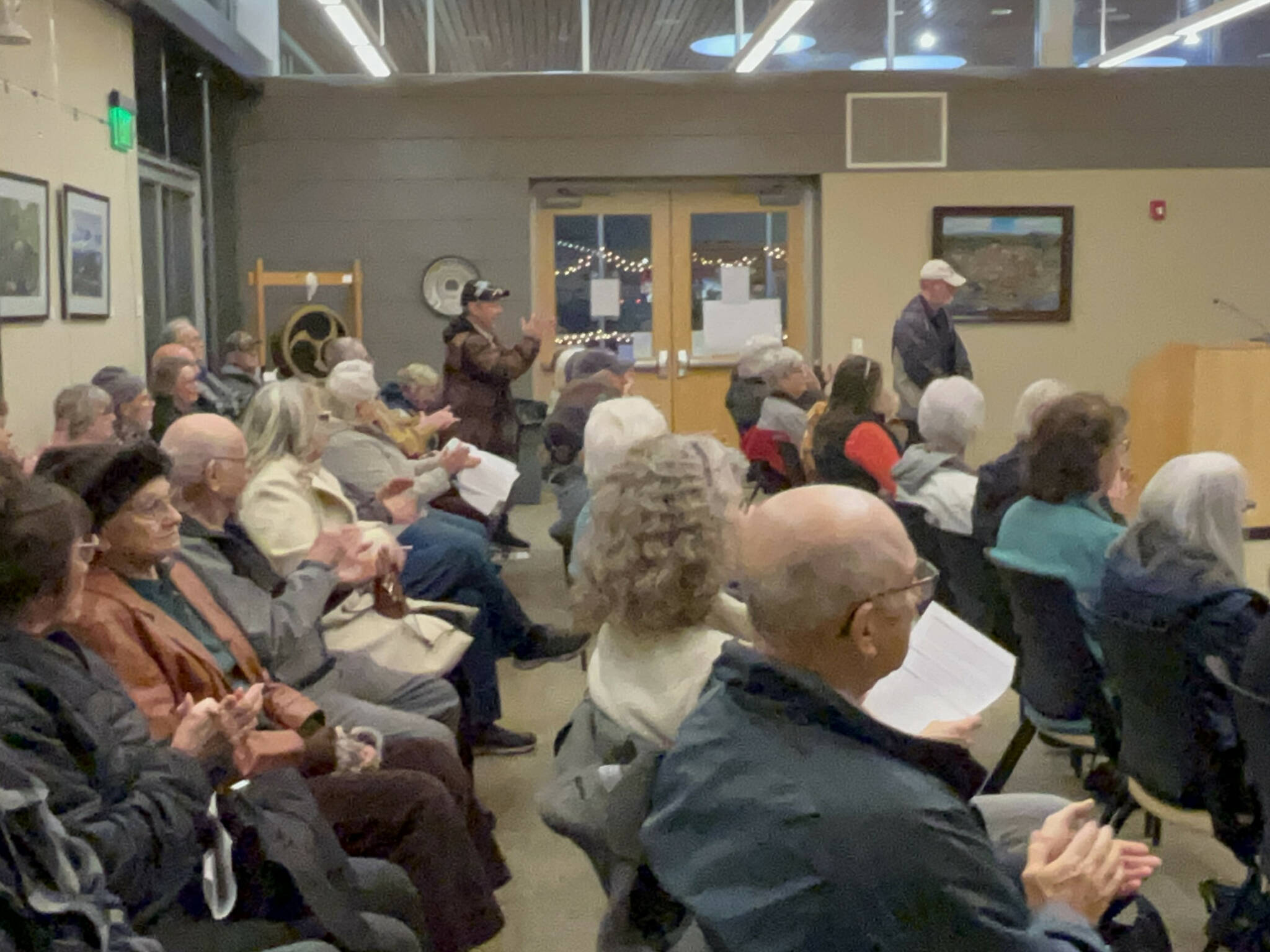SEQUIM — Manufactured home parks in the city of Sequim will remain as such following council action to approve a new overlay that preserves those areas as one of the city’s options for affordable housing.
Council members voted 6-0 for an ordinance to enact the overlay at their Dec. 9 meeting with Mayor Brandon Janisse excused and Deputy Mayor Rachel Anderson reading aloud his letter of support.
He wrote that the zoning is “vital” and he thanked community members and city staff and officials for their collaboration, while residents held council members accountable and “ensured that we never lost sight of who we are here to serve.”
“Tonight’s discussion and the motion before us mark just the first step in what I hope will be an ongoing effort to address housing challenges in Sequim,” Janisse said.
“While this motion focuses on mobile home park zoning, your advocacy extends far beyond this issue. It highlights the broader housing needs and burdens that so many in our community face. I truly believe that this effort will set the tone for future housing initiatives, ensuring that Sequim remains a place where everyone can find a home.”
Discussions began among community members in fall 2022 about measures to prevent manufactured home parks from being removed. Council members directed staff in June 2023 to investigate a manufactured home zoning overlay, and moratorium options on any redevelopment in those areas.
The first moratorium on any rezoning or redevelopment of manufactured home parks was approved in August 2023 and renewed twice for six months each. The latest moratorium would have expired in January.
City officials mailed hundreds of letters to all manufactured home residents and property owners in the city about the public hearing.
After months of discussions, the Sequim Planning Commission recommended the overlay and to create a new chapter of the Sequim Municipal Code “Chapter 18.63 – Manufactured Home and Mobile Home (MHP) Park Zoning Overlay.”
Council member Kathy Downer said on Dec. 9 she appreciated the effort that went into the overlay.
“(It) was a long time coming, but this is how the process works, and it’s proof the process worked,” she said. “We just have to be patient.”
Doug Wright, a manufactured home resident who has advocated for council action, said city staff have been willing to learn and listen.”
“They’ve been great,” he said.
Reaction
Kathy Robinson, a manufactured home resident in the city, said she was both overwhelmed and excited with the council’s decision as many residents have feared for years their homes could be made into condos or something else as some developments have been sold.
“If they all of sudden have to move and have nowhere to go, it’s pretty tough,” she said.
Wright said the situation is “life or death” for a lot of people.
He and others have been advocating for city changes after learning about possible options across the country.
“We started investigating what an overlay was, how it worked, and we built and built and built and started presenting,” he said.
Wright said the overlay and rising rents, despite many manufactured park residents owning their homes, are separate issues.
“An overlay doesn’t preserve the homes,” he said.
“(Owners) can still sell and build a new manufactured home.”
But the option of moving one’s home to another piece of property, due to rent increases or redevelopment (prior to the overlay), isn’t a likely option for most, Wright and Robinson said.
“There’s a lot of people who can’t do that,” Wright said. “A lot of people spent their last dollar on their last home and now they’re being priced out of it.”
If homes are older than 10 years old, most manufactured home parks won’t accept them, Robinson said, and there’s no guarantee one would stay together if it’s transported because of its age.
Annette Hanson, a manufactured home resident in the city, spoke during the overlay’s Dec. 9 public hearing, saying her rent has gone up $250 in four years. She encouraged council members to work with state legislators to pursue rent cap protection.
Earlier this year, the Senate Ways and Means Committee declined to vote on a bill to cap rent increases, but local advocates are optimistic.
Wright and other advocates held meetings on Dec. 14-15 at KSQM’s community room to discuss what the overlay is, and the next steps for the community and state.
Robinson said they hope to educate more people about the Legislature’s committee processes and how they can get involved.
“The next step is educating and mobilizing them to help with rent control,” she said.
Wright said “it’s a crying shame” seeing so many residents on fixed incomes needing to go to the Sequim Food Bank and free pantries due to their increased rents.
Robinson said the overlay could be a trend-setting move for other jurisdictions, too, including across Clallam County.
“We’re hoping for a domino effect here,” she said.
“It can be done,” Wright said.
________
Matthew Nash is a reporter with the Olympic Peninsula News Group, which is composed of Sound Publishing newspapers Peninsula Daily News, Sequim Gazette and Forks Forum. Reach him by email at matthew.nash@sequimgazette.com.

